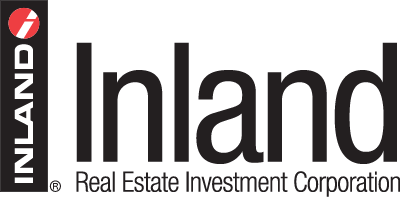How Financial Professionals Are Helping Clients Interested in Selling a Business Property
Financial professionals may miss opportunities to grow their practice within their own client base. One area that may be overlooked is identifying clients who own investment properties used for business purposes that may be interested in selling.
Financial professionals who can offer expertise and guidance in this arena can grow their assets under management by selecting securitized replacement properties for 1031 exchanges such as Delaware Statutory Trusts (DSTs). DSTs have many benefits that investors are simply not aware of. Financial professionals who can articulate DST advantages stand to benefit as well. Let's look at eight of these benefits:
1. Avoid Financing Obstacles
In a 1031 exchange transaction, the sum of the cash invested and debt placed or assumed on the replacement property must be equal to or greater than the sum of the cash invested and debt relieved in the relinquished property.
Many replacement programs are structured so that the replacement property is owned by a DST. The DST is a pass-through entity that owns the real estate assets. When a replacement property is owned by a DST, the DST will be the borrower of any loan and investors in that DST will not need to be individually qualified with a lender.
2. DSTs Make Great Back Up Properties
A common strategy to identify replacement properties is the “3 Property Rule,” where an exchanger may identify up to three properties, without regard to fair market value, within 45 days. Identifying only one property may be dangerous because a property can fall out of escrow for many reasons: financing, inspections, etc.
To secure an opportunity to execute a successful 1031 exchange, the exchanger could identify the first property as defined by the investor/commercial real estate broker. The exchanger can then identify two additional properties owned by DSTs. It costs the exchanger no extra money to identify additional properties. Taking this precaution ensures that the exchanger has adequate choices.
3. No Property Management Headaches
A property owned by a DST is professionally managed by a third party. Professional managers handle the Terrible T’s: Tenants, Toilets, Trash, Turmoil, Termites. The investor enjoys the Terrific T’s: Travel, Time, Tennis. For investors who have previously dealt with the headaches associated with managing properties, this can be a very compelling benefit.
4. Diversification Benefits
Investing in a DST can provide portfolio diversification. For instance, an investment could be made in a single DST that owns multiple properties in several states. It would be almost impossible for a broker to identify three replacement properties in three different states within the allowed 45-day timeframe.
An example would be where an investor is able to diversify his portfolio by asset type, size and geography by selecting a DST that owns multi-family apartments in Chicago, a large commercial office building in Denver and single-tenant retail property in Miami. You can see why DSTs are an optimal way to achieve diversification.
5. Clients Avoid Getting Sidelined
Many realtors have clients that will not sell until they find the “right” property. Having the option to invest in institutional-grade properties owned by professionally managed DSTs may get investors off the sidelines, and the realtor receives their commission.
6. Swap Till You Drop
The DST structure allows the investor to continue to exchange properties repeatedly until the investor’s death. Upon the death of the investor, under current tax laws, the heirs would get a “step up” in basis, thereby avoiding capital gains taxes on the original and subsequent properties, and heirs could continue to receive income distributions from the DST, if any.
7. Estate Planning Tool
Everyone wants the best possible scenario for their heirs before they pass. Investing in a DST eliminates the opportunity for heirs to argue over what to do with an investment property when the owner passes away. The heirs continue to receive distributions from the investment, if any, and upon the sale of the property owned by the DST, each of the heirs can choose what to do with their inherited portion. One heir can continue to exchange the investment, while another can sell and receive cash proceeds.
8. Low Minimums
Many DSTs allow an investor to exchange for as little as $100,000. Because DSTs are structured so that a large number of investors can participate - up to 499 investors in some cases - the minimum amount invested can be significantly lower than other investments because there are simply more investors participating.
Risk Factors to Carefully Consider
Some of the risks related to investing in commercial real estate include, but are not limited to: market risks such as local property supply and demand conditions; tenants’ inability to pay rent; tenant turnover; inflation and other increases in operating costs; adverse changes in laws and regulations; relative illiquidity of real estate investments; changing market demographics; acts of God such as earthquakes, floods or other uninsured losses; interest rate fluctuations; and availability of financing.
This is a brief and general description of certain 1031 guidelines. There are various risks related to purchasing securities as part of a 1031 exchange, including tax complexity, illiquidity and restrictions on ownership and transfer. Because each prospective investor’s tax implications are different, all prospective investors should consult with their tax advisors.
Summary
As mentioned earlier, financial professionals who have a complete view of their clients’ assets, including real estate owned and used for business purposes, have an excellent opportunity to grow their business organically by helping clients consider the advantages of DSTs when appropriate. Hopefully this post has helped reinforce what many of those advantages are.




